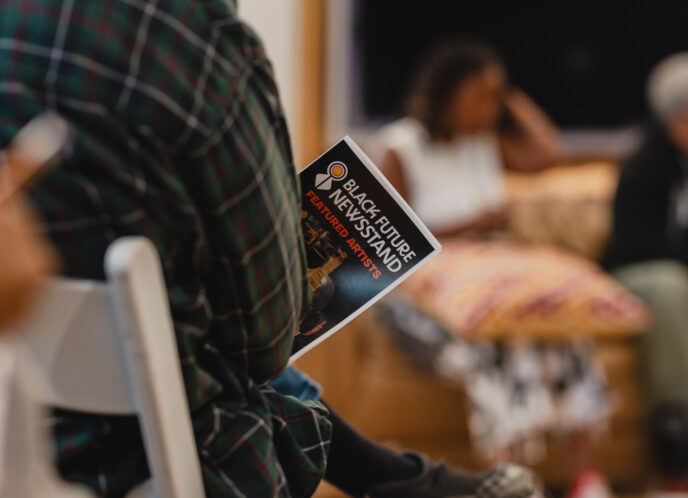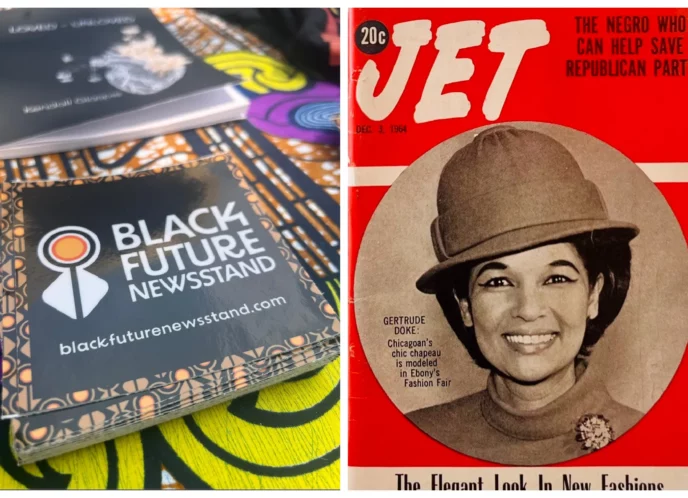On September 9, the D.C. Circuit Court heard oral arguments in Verizon’s lawsuit challenging the Federal Communications Commission’s Open Internet Order. The outcome of this case determines the future of the Internet and the jurisdiction of the Federal Communications Commission.
At a recent event host by New America Foundation and Free Press, media policy experts weighed on the importance of preserving Internet freedom. The panel featured: Susan Crawford, Professor, Benjamin N. Cardozo School of Law; Angie Kronenberg, Chief Advocate and General Counsel, COMPTEL; Marti Doneghy, Senior Legislative Representative, AARP; Matt Wood, Policy Director, Free Press; and Sarah Morris, Senior Policy Counsel, Open Technology Institute, New America Foundation. Watch the full session here.
Also present, Steven Renderos of the Media Action Grassroots Network talks about why communities of color have a huge stake in this fight. Watch the clip below.
TRANSCRIPT:
Hi my name is Steven Renderos and though I work at the Center for Media Justice today I’m here representing the more than 160 members of the Media Action Grassroots Network and the communities they’re from, mostly communities of color, rural, poor and working class communities. We care about this case because we know an open Internet impacts the health and well being of our communities. It protects the public interest and specifically protects the most vulnerable communities who without these protections could be priced out of the Internet or relegated to a second class Internet. Lastly, the open Internet has been vital in democratizing our communications and providing a legitimate platform for dissent and opposition to the dominant narratives perpetuated through mainstream media.
This case is about control and ownership of this vital infrastructure and these are pre-existing tensions that communities of color are all too familiar with. Many of our communities’ struggles in other areas like education, health care, jobs are evidence of these tensions. One of our network members, Young Peoples Project has a math and digital media literacy program for children in elementary, middle school and high school because they know how critical these skills are to a quality education. Broadband is also a catalyst for economic growth and development . This is precisely what the Center for Social Inclusion and the Mississippi NAACP were looking to document when they published a report titled “Broadband in the Mississippi Delta”. They found that zip codes with 4 to 7 internet service providers had 378 businesses, zip codes with 0 broadband providers had about 7. The zip codes with no broadband were mostly rural communities and communities of color.
What we learn from these struggles is that when we lack agency over these critical infrastructures, our communities suffer. This case and the fight for an open Internet is our fight because it's directly tied to all our other fights for community health and well being.
Corporation exists for the purpose of profit and inevitably their pursuit for profit will conflict with the public interest. In those moments profit making usually wins out But it doesn't have to be this way. Network Neutrality is the principle that protects the public. If it erodes we face an Internet ecosystem that will prey on those most in need of protection. We saw an example of this a couple years ago, shortly after the FCC implemented its open Internet rules. Metro PCS switched its data plans to a tiered structure that provided more access, more website the more you were willing to pay. It mirrored a cable package more than it did an internet service. Other examples exist that when these companies are in a position to pick winners and losers on the Internet, the losers tend to be communities of color, rural communities and other marginalized communities.
Without an open Internet, we are denied one more platform–and arguably the biggest platform–to express opinions that reflect the best interests of OUR communities. This is relevant now as the President and Congress discuss what action to take in Syria—it’s vitally important that we have access to media platforms that allow us to oppose U.S. military force in Syria, share stories from groups like Iraq Veterans Against the War and challenge the obvious anti-muslim racism that is part of so much of the mainstream media.
Consider that many of the companies that have opposed network neutrality are the same companies that have willingly given the NSA the cell and Internet data of users across the U.S. An open Internet is what brought these secret surveillance programs to light, and without them we risk the health and well being of our communities, our ability to communicate and our ability to participate in a 21st century digital ecology.


